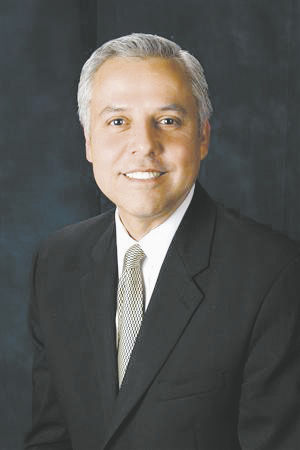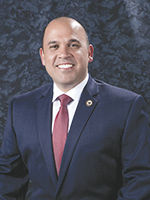HARLINGEN — Sen. Eddie Lucio Jr. announced yesterday he would not move forward with legislation to consolidate local school districts.
Lucio said he’d decided not to proceed with Senate Bill 2113, which would have authorized a study about consolidating nine school districts into one county-wide district.
That district would have encompassed Harlingen, Brownsville, San Benito, Port Isabel, Los Fresnos and Rio Hondo, among others.
Educators throughout Cameron County reacted swiftly against the study and possible consolidation, leading to Lucio’s decision to withdraw the bill.
“I have other things that I am able to do around the table,” he said yesterday.
He said he would continue to investigate the issue and seek the assistance of nonprofit organizations.
Lucio said organizing all schools under one “umbrella” would enhance efficiency on many levels. It could create savings through shared purchasing, grant writing and provision of services across current district lines, he said.
“That’s probably going to be the most difficult one to deal with,” Lucio said of the “umbrella” concept. “I am probably going to have to bring in the experts on that one.”
The consolidation of districts would mean there would be one superintendent instead of nine and only one law firm to represent a county-wide district. This would also mean eliminating the nine elected school boards and replacing them with one board to oversee the whole county.
“I know that all of the districts in my home county have developed robust networks of local support to deal with the historic lack of funds available to them,” he said. “This is absolutely an important piece of the puzzle and I want to make sure that the local voices are included in the conversation.”
However, reaction to the bill was immediate.
“We take this in Harlingen as very offensive,” said Dr. Nolan Perez, a board member for the Harlingen school district.
The bill implied local school districts could not address their own challenges, Perez said. The nature of the bill indicated districts needed to turn power over to a county-wide authority.
“This bill overrides the existing law,” Perez said. “It circumvents the community and the district to oversee public education to our citizens here.”
Harlingen Superintendent Art Cavazos also addressed the importance of the school district to the community.
“I think that any movement to move away from local control and local decision-making does not always fare well for public schools and education,” Cavazos said.
“The school district is the community and the community is the school district. The will of the community and the highest hopes for kids and so forth are better discussed and addressed at the local level.”
Dismantling nine school districts and replacing them with one to save money concerned Sylvia Atkinson, a Brownsville school board member.
“To be honest, I don’t see how that would streamline,” Atkinson said. “That would be disruptive to the school systems, to the political systems, to the communities. It would really be disruptive to the overall success of any of those nine districts.”
Lucio had submitted both SB 2112 and 2113 to address the nagging problem of school funding. The first bill, 2112, called for the organization of the county wide district. However, Lucio chose not to proceed with that bill for several reasons and introduced 2113 calling for a study of the idea.
“Many school districts across the state, particularly those in South Texas, have suffered for years from underfunding,” said Lucio, a former educator.
“One approach I determined could have a beneficial financial impact was a combination of districts, district consolidation,” he said. “The goal was to make available shared services between the current districts as well as additional financial resources through an expanded tax base.”
Lucio said he’d hoped the current school finance system would be deemed unconstitutional last year, thus allowing for reform that would increase more funding.
When the Texas Supreme Court ruled the school’s finance system was constitutional, he began searching for other ways to solve the problem.
“I wanted to look into other possible solutions, avenues that will create savings and increase revenue to our districts,” he said. “Let me add that elimination of duplicated services would be something I would look at, we should look at, because they may provide cost savings to districts. But that is not the only potential benefit.”






